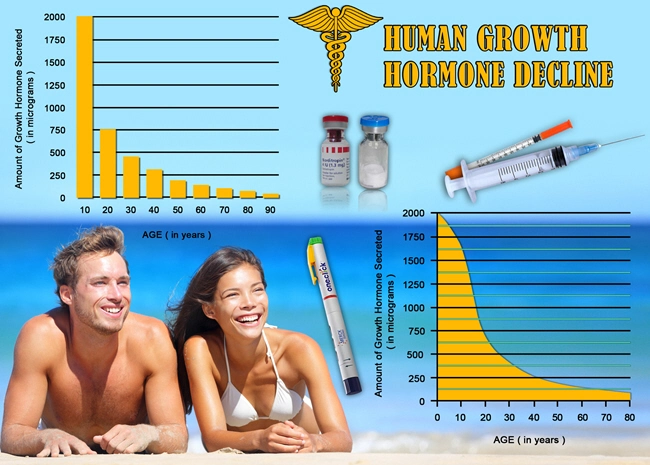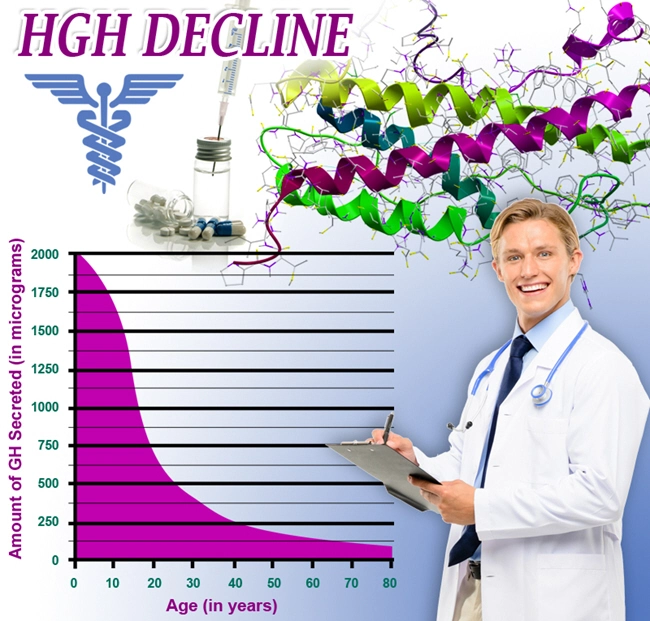
Introduction
Low libido, or a decreased interest in sexual activity, is a common concern among American males. While various factors can contribute to this condition, one often overlooked cause is the use of certain medications. This article delves into the impact of commonly prescribed drugs on sexual desire, offering insights into how American men can better manage their medication regimens to maintain a healthy sex life.
Understanding Low Libido
Low libido can be a distressing issue for many men, affecting not only their sexual health but also their overall well-being and relationships. It is important to recognize that libido can be influenced by a multitude of factors, including psychological stress, hormonal imbalances, and lifestyle choices. However, medications are a significant yet frequently under-discussed contributor to this problem.
Common Medications and Their Impact on Libido
Several classes of medications have been associated with reduced sexual desire in men. Antidepressants, particularly selective serotonin reuptake inhibitors (SSRIs) such as fluoxetine and sertraline, are notorious for their potential to decrease libido. These drugs work by increasing serotonin levels in the brain, which can lead to sexual side effects in some individuals.
Beta-blockers, commonly prescribed for heart conditions and high blood pressure, can also dampen sexual desire. Medications like metoprolol and atenolol may interfere with the body's natural response to sexual stimuli, leading to a decreased interest in sex.
Additionally, certain antihypertensive drugs, such as diuretics and alpha-blockers, have been linked to low libido. These medications can alter hormone levels and blood flow, both of which are crucial for maintaining a healthy sex drive.
Navigating Medication-Induced Low Libido
For American men experiencing low libido due to medications, it is crucial to have an open dialogue with their healthcare providers. Discussing the potential sexual side effects of prescribed drugs can lead to adjustments in dosage or the exploration of alternative medications with fewer impacts on libido.
In some cases, switching to a different class of antidepressants, such as bupropion, which is less likely to affect sexual desire, may be beneficial. Similarly, for those on beta-blockers, a healthcare provider might recommend a different type of blood pressure medication that is less likely to interfere with sexual function.
Lifestyle Modifications and Complementary Approaches
In addition to medication adjustments, lifestyle modifications can play a significant role in managing low libido. Regular exercise, a balanced diet, and adequate sleep can help improve overall health and, consequently, sexual desire. Stress management techniques, such as mindfulness and meditation, can also be beneficial in enhancing libido.
For some men, complementary approaches like herbal supplements or acupuncture may offer additional support. However, it is essential to consult with a healthcare provider before starting any new supplements or treatments, as they can interact with existing medications.
Conclusion
Low libido is a complex issue that can significantly impact the quality of life for American men. While medications are a necessary part of managing various health conditions, it is crucial to be aware of their potential effects on sexual desire. By working closely with healthcare providers and making informed decisions about medication regimens, men can take proactive steps to maintain a healthy and satisfying sex life. Embracing a holistic approach that includes lifestyle modifications and open communication can further empower men to address and overcome the challenges of low libido.
Contact Us Today For A Free Consultation
Dear Patient,
Once you have completing the above contact form, for security purposes and confirmation, please confirm your information by calling us.
Please call now: 1-800-380-5339.
Welcoming You To Our Clinic, Professor Tom Henderson.

- Revitalizing Intimacy: Strategies for Overcoming Low Libido in Long-term Relationships [Last Updated On: February 23rd, 2025] [Originally Added On: February 23rd, 2025]
- Revolutionizing the Approach to Low Libido: Proactive Medical Science at Work [Last Updated On: March 2nd, 2025] [Originally Added On: March 2nd, 2025]
- Comprehensive Analysis of Factors Influencing Male Libido: Psychological, Physiological, and Therapeutic Perspectives [Last Updated On: March 3rd, 2025] [Originally Added On: March 3rd, 2025]
- Understanding and Addressing Low Libido in Men: Causes and Solutions [Last Updated On: March 4th, 2025] [Originally Added On: March 4th, 2025]
- Exploring Hormonal Influences on Male Libido and Treatment Options [Last Updated On: March 5th, 2025] [Originally Added On: March 5th, 2025]
- Comprehensive Guide to Understanding and Managing Low Libido in Men [Last Updated On: March 6th, 2025] [Originally Added On: March 6th, 2025]
- Managing Menopausal Libido: Understanding the Impact and Effective Solutions for Women's Health [Last Updated On: March 7th, 2025] [Originally Added On: March 7th, 2025]
- Understanding Low Libido in Men: Causes, Impacts, and Effective Management Strategies [Last Updated On: March 8th, 2025] [Originally Added On: March 8th, 2025]
- Understanding Low Libido in Men: Psychological Factors and Practical Solutions [Last Updated On: March 9th, 2025] [Originally Added On: March 9th, 2025]
- Unveiling the Link: Anxiety and Its Impact on Male Libido in the American Context [Last Updated On: March 11th, 2025] [Originally Added On: March 11th, 2025]
- Unraveling the Link Between Chronic Diseases and Low Libido in American Males [Last Updated On: March 12th, 2025] [Originally Added On: March 12th, 2025]
- Unveiling the Spectrum of Medical Therapies for Low Libido in Postpartum American Males [Last Updated On: March 13th, 2025] [Originally Added On: March 13th, 2025]
- Exploring Treatments for Low Libido in American Males: Hormonal, Psychological, and Innovative Approaches [Last Updated On: March 15th, 2025] [Originally Added On: March 15th, 2025]
- Exploring Physical Causes of Low Libido in American Males: Hormones, Health, and Lifestyle [Last Updated On: March 16th, 2025] [Originally Added On: March 16th, 2025]
- Natural Supplements for Low Libido in Men: Scientific Insights and Clinical Evidence [Last Updated On: March 19th, 2025] [Originally Added On: March 19th, 2025]
- Chronic Illness Impact on Libido: Medical Insights and Management Strategies for American Males [Last Updated On: March 19th, 2025] [Originally Added On: March 19th, 2025]
- Low Libido in Men: Causes, Medical Interventions, and Lifestyle Solutions [Last Updated On: March 19th, 2025] [Originally Added On: March 19th, 2025]
- Exploring Medical Causes and Solutions for Low Libido in American Men [Last Updated On: March 19th, 2025] [Originally Added On: March 19th, 2025]
- Medication-Induced Low Libido in American Men: Causes and Countermeasures [Last Updated On: March 19th, 2025] [Originally Added On: March 19th, 2025]
- Psychological Roots of Low Libido in American Males: Stress, Depression, and Beyond [Last Updated On: March 20th, 2025] [Originally Added On: March 20th, 2025]
- Diabetes and Libido: Understanding Impacts and Managing Low Sexual Desire in American Males [Last Updated On: March 20th, 2025] [Originally Added On: March 20th, 2025]
- Medications Impacting Male Libido: Causes, Effects, and Management Strategies [Last Updated On: March 21st, 2025] [Originally Added On: March 21st, 2025]
- Exploring Low Libido in Men: Causes, Treatments, and Future Innovations [Last Updated On: March 21st, 2025] [Originally Added On: March 21st, 2025]
- Low Libido in Middle-Aged Men: Causes, Treatments, and Importance of Professional Help [Last Updated On: March 21st, 2025] [Originally Added On: March 21st, 2025]
- Low Libido in American Men: Health Risks and Importance of Medical Intervention [Last Updated On: March 21st, 2025] [Originally Added On: March 21st, 2025]
- Low Libido and Depression: Understanding the Medical Connection in American Men [Last Updated On: March 21st, 2025] [Originally Added On: March 21st, 2025]
- Hyperthyroidism's Impact on Libido in American Males: Causes, Effects, and Management [Last Updated On: March 22nd, 2025] [Originally Added On: March 22nd, 2025]
- Chronic Pain and Low Libido: Understanding the Medical Connection in American Men [Last Updated On: March 23rd, 2025] [Originally Added On: March 23rd, 2025]
- Understanding and Managing Low Libido in American Men: A Holistic Approach [Last Updated On: March 23rd, 2025] [Originally Added On: March 23rd, 2025]
- Understanding and Overcoming Low Libido in Men: A Holistic Approach [Last Updated On: March 23rd, 2025] [Originally Added On: March 23rd, 2025]
- Understanding and Treating Low Libido in American Men: A Holistic Approach [Last Updated On: March 23rd, 2025] [Originally Added On: March 23rd, 2025]
- Postpartum Libido Decline in American Males: Causes and Multifaceted Solutions [Last Updated On: March 23rd, 2025] [Originally Added On: March 23rd, 2025]
- Understanding and Supporting Low Libido in Women Over 50: A Holistic Approach [Last Updated On: March 24th, 2025] [Originally Added On: March 24th, 2025]
- Low Libido in American Men: Causes, Impacts, and Solutions [Last Updated On: March 24th, 2025] [Originally Added On: March 24th, 2025]
- Alcohol's Impact on Libido: Physiological, Psychological, and Relational Effects in American Men [Last Updated On: March 24th, 2025] [Originally Added On: March 24th, 2025]
- Effective Treatments for Low Libido in American Males: A Comprehensive Guide [Last Updated On: March 24th, 2025] [Originally Added On: March 24th, 2025]
- Exploring the Vicious Cycle of Low Libido and Weight Gain in American Males [Last Updated On: March 24th, 2025] [Originally Added On: March 24th, 2025]
- Understanding and Enhancing Low Libido in Men: A Holistic Approach [Last Updated On: March 24th, 2025] [Originally Added On: March 24th, 2025]
- Understanding and Treating Low Libido in American Males: A Holistic Approach [Last Updated On: March 24th, 2025] [Originally Added On: March 24th, 2025]
- Understanding and Supporting Low Libido in Lactating Women: A Guide for American Males [Last Updated On: March 24th, 2025] [Originally Added On: March 24th, 2025]
- Understanding Low Libido in American Males: Causes, Risks, and Treatment Options [Last Updated On: March 24th, 2025] [Originally Added On: March 24th, 2025]
- Effective Medical Treatments for Boosting Libido in American Males [Last Updated On: March 25th, 2025] [Originally Added On: March 25th, 2025]
- Sudden Low Libido in American Men: Causes, Treatments, and Prevention Strategies [Last Updated On: March 25th, 2025] [Originally Added On: March 25th, 2025]
- Revitalizing Sexual Health: Understanding and Overcoming Low Libido in American Males [Last Updated On: March 25th, 2025] [Originally Added On: March 25th, 2025]
- Low Libido Treatments for American Males: Risks and Benefits Explored [Last Updated On: March 26th, 2025] [Originally Added On: March 26th, 2025]
- Understanding and Addressing Low Libido in American Males: Causes and Solutions [Last Updated On: March 26th, 2025] [Originally Added On: March 26th, 2025]
- Understanding and Treating Low Libido in American Males: Causes and Interventions [Last Updated On: March 26th, 2025] [Originally Added On: March 26th, 2025]
- Post-Surgery Libido Recovery: Hormonal, Psychological, and Physical Strategies for American Males [Last Updated On: March 26th, 2025] [Originally Added On: March 26th, 2025]
- Understanding Low Libido in American Males: Causes, Diagnosis, and Treatment Options [Last Updated On: March 26th, 2025] [Originally Added On: March 26th, 2025]
- Low Libido in American Males Post-Pregnancy: Causes, Impacts, and Solutions [Last Updated On: March 26th, 2025] [Originally Added On: March 26th, 2025]
- Low Libido in Male Athletes: Causes, Effects, and Holistic Management Strategies [Last Updated On: March 26th, 2025] [Originally Added On: March 26th, 2025]
- Low Libido in American Women: Causes, Impacts, and Tailored Treatment Strategies [Last Updated On: March 26th, 2025] [Originally Added On: March 26th, 2025]
- Boosting Male Libido: Diet, Exercise, and Lifestyle Strategies for Sexual Health [Last Updated On: March 26th, 2025] [Originally Added On: March 26th, 2025]
- Chronic Low Libido in American Males: Medical Signs and Underlying Causes [Last Updated On: March 27th, 2025] [Originally Added On: March 27th, 2025]
- Managing Age-Related Low Libido in American Men: Hormonal, Lifestyle, and Psychological Approaches [Last Updated On: March 27th, 2025] [Originally Added On: March 27th, 2025]
- Understanding Low Libido: Causes, Impacts, and Management Strategies for American Men [Last Updated On: March 27th, 2025] [Originally Added On: March 27th, 2025]
- Understanding and Treating Low Libido in American Males: A Comprehensive Guide [Last Updated On: March 27th, 2025] [Originally Added On: March 27th, 2025]
- Understanding and Treating Low Libido in American Men: A Comprehensive Guide [Last Updated On: March 27th, 2025] [Originally Added On: March 27th, 2025]
- Medical Patterns of Low Libido in Young American Males: Causes and Interventions [Last Updated On: March 27th, 2025] [Originally Added On: March 27th, 2025]
- Low Libido in American Males: Causes, Impacts, and Treatment Options [Last Updated On: March 28th, 2025] [Originally Added On: March 28th, 2025]
- Low Libido in Male Surgical Patients: Physiological, Psychological, and Treatment Insights [Last Updated On: March 28th, 2025] [Originally Added On: March 28th, 2025]
- Effective Medical Strategies to Restore Libido in American Males [Last Updated On: March 29th, 2025] [Originally Added On: March 29th, 2025]
- Understanding and Revitalizing Low Libido in American Men: Causes and Solutions [Last Updated On: March 30th, 2025] [Originally Added On: March 30th, 2025]
- Low Libido and Unhappiness in American Men: Causes, Impacts, and Solutions [Last Updated On: March 31st, 2025] [Originally Added On: March 31st, 2025]
- Managing Low Libido in American Males Post-Chemotherapy: Medical and Lifestyle Approaches [Last Updated On: March 31st, 2025] [Originally Added On: March 31st, 2025]
- Hypertension's Impact on American Males' Libido: Causes and Management Strategies [Last Updated On: April 1st, 2025] [Originally Added On: April 1st, 2025]
- Understanding Low Libido in Women: Medical Insights for American Males [Last Updated On: April 4th, 2025] [Originally Added On: April 4th, 2025]
- Understanding and Combating Low Libido in American Men: Medical Causes and Strategies [Last Updated On: April 4th, 2025] [Originally Added On: April 4th, 2025]
- Antidepressants and Low Libido in American Males: Impacts and Management Strategies [Last Updated On: April 5th, 2025] [Originally Added On: April 5th, 2025]
- Rising Low Libido in American Males: Causes, Impacts, and Treatment Options [Last Updated On: April 5th, 2025] [Originally Added On: April 5th, 2025]
- Understanding and Treating Low Libido in American Males: Causes and Solutions [Last Updated On: April 7th, 2025] [Originally Added On: April 7th, 2025]
- Understanding and Boosting Low Libido in American Men: A Holistic Approach [Last Updated On: April 8th, 2025] [Originally Added On: April 8th, 2025]
- Libido in American Men: Impact of Medical Procedures and Management Strategies [Last Updated On: April 8th, 2025] [Originally Added On: April 8th, 2025]
- Medical Factors Impacting Low Libido in Women Under 40: A Comprehensive Overview [Last Updated On: April 8th, 2025] [Originally Added On: April 8th, 2025]
- Addressing Low Libido in American Males: Causes, Diagnostics, and Tailored Treatments [Last Updated On: April 9th, 2025] [Originally Added On: April 9th, 2025]
- Understanding Low Libido in American Males: Causes, Treatments, and Holistic Approaches [Last Updated On: April 9th, 2025] [Originally Added On: April 9th, 2025]
- Medical Causes of Persistent Low Libido in American Men: Hormones, ED, and More [Last Updated On: April 9th, 2025] [Originally Added On: April 9th, 2025]
- Medical Insights into Low Libido: Causes, Diagnosis, and Treatments for American Men [Last Updated On: April 10th, 2025] [Originally Added On: April 10th, 2025]
- Understanding and Managing Low Libido in American Males: A Holistic Approach [Last Updated On: April 10th, 2025] [Originally Added On: April 10th, 2025]
- Understanding and Treating Low Libido in American Males: Causes and Solutions [Last Updated On: April 11th, 2025] [Originally Added On: April 11th, 2025]








